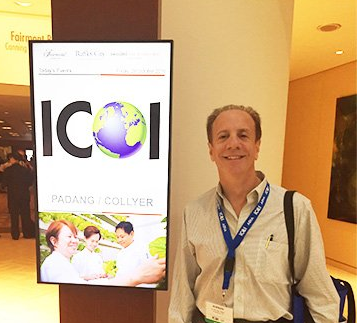Wisdom Teeth in Philadelphia, PA
- Your wisdom teeth do not fit in your mouth. Most people have 28 teeth before wisdom teeth erupt. Many do not have enough room in their jaw for 32 teeth and this may cause teeth to become impacted. Impacted means the wisdom teeth cannot fully erupt or they may become misaligned. Removing the wisdom teeth can prevent impaction and overcrowding in your jaw.
- You experience chronic pain in your gums around your wisdom teeth. Pain in your gums can be an indication of infection. Infections are common around partially erupted wisdom teeth because food and bacteria get trapped in these areas. Having your wisdom teeth removed can prevent further infection.
- Your wisdom teeth do not come in straight. Often, wisdom teeth will not grow in straight and can cause your teeth to shift and move over time. To prevent your teeth from moving, removing your wisdom teeth is often recommended.
- Your wisdom teeth are causing tooth decay to adjacent teeth. Wisdom teeth can be difficult to keep clean because of their location in the mouth. Flossing and brushing can be challenging and without good oral care, gum disease and tooth decay can develop. Removing your wisdom teeth can prevent tooth decay issues in surrounding teeth as well as the wisdom teeth.
What happens during surgery?
Frequently Asked Questions When Having Your Wisdom Teeth Removed
- Will all of my wisdom teeth be removed?
Because each patient’s needs are unique, it’s important to discuss your options with your doctor. During your consultation, your doctor will discuss how many wisdom teeth need to be removed in order to prevent future dental issues. The doctor may choose to remove all wisdom teeth at once or just remove a few potentially problematic teeth.
- What type of anesthesia will be used?
Our office uses different types of general anesthesia during wisdom teeth extractions. To learn more about the various forms of sedation we offer, visit the Sedation page of our website.
- How long does the procedure take?
The duration of your procedure depends on how many wisdom teeth are being removed. Usually, the procedure lasts 1 to 2 hours.
- How long until I am completely healed after surgery?
Complete healing doesn’t fully occur for a few weeks to a few months after extraction. Usually, after about two weeks, your mouth will be reasonably comfortable.
- Are there any potential post-surgery complications?
There are two potential complications that may occur post surgery. Dry socket is a common complication that occurs when a blood clot has failed to form in the extracted tooth socket or when a clot has been dislodged. Dry sockets usually occur 3-4 days after the extraction and are accompanied by pain and a foul mouth odor. Dry sockets are easily treated by placing a medication in the socket.
Paresthesia is a less common complication that occurs when nerves in the jawbone are bruised or damaged during the extraction process. This may result in numbness (paresthesia) of the tongue, lip, or chin that can last days, weeks, or be permanent.
- Will I have to miss work or school?
Most patients usually have to miss at least 1-2 days of work or school after their wisdom teeth are extracted. Your doctor may prescribe painkillers that will make it difficult to focus as they may make you dizzy or sleepy. Patients are asked to keep ice on the outside of their face for at least 24 hours to prevent inflammation or swelling. Your doctor will also usually recommend relaxing as physical activity, even as minor as walking, may increase bleeding. However, after a few days of recovery, most patients are able to return to their day-to-day activities with little to no problem.
- My dentist does wisdom tooth extraction. Should I still see an oral surgeon to have my wisdom teeth removed?
Oral and maxillofacial surgeons (OMS’s) are the only dental specialists recognized by the American Dental Association who are surgically trained in a hospital-based residency program for a minimum of four years. OMS’s train alongside medical residents in internal medicine, general surgery and anesthesiology, and spend time in otolaryngology, plastic surgery, emergency medicine and other specialty areas. Their training focuses almost exclusively on the hard (i.e., bone) and soft (i.e., skin, muscle) tissue of the face, mouth, and jaws. Their knowledge and surgical expertise uniquely qualifies them to diagnose and treat the functional and esthetic conditions in this anatomical area.
- What is the best age to have wisdom teeth removed?
Because each patient is unique, the ideal age to remove wisdom teeth may vary. Most doctors will recommend having them removed before they are fully developed to prevent crowding after eruption. Younger patients also tend to heal faster and with fewer complications than older patients.
- What if I chose not to have my wisdom teeth removed now?
Even if you chose to wait to have your wisdom teeth removed, it is important to continuously monitor them. Your mouth is constantly changing over time and it is possible to develop problems later in life. As with many other health conditions, as people age, they are at a greater risk for health problems and that risk includes potential problems with their wisdom teeth.
Schedule Your Consultation
Wisdom Teeth
We will get back to you as soon as possible.
Please try again later.
The Tabas Center For Advanced Dentistry
2534 S Broad St,
Philadelphia, PA 19145
Our Primary Service Areas
Office Hours
- Mon - Wed
- -
- Thursday
- -
- Friday
- Closed
- Saturday
- -
- Sunday
- Closed
Content Reviewed By
All Rights Reserved | The Tabas Center for Advanced Dentistry

